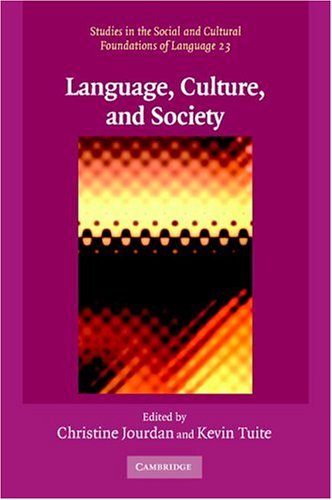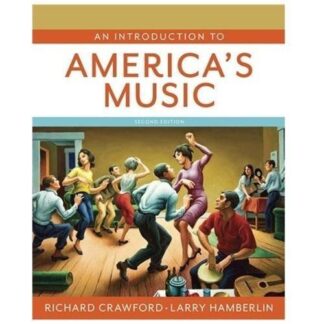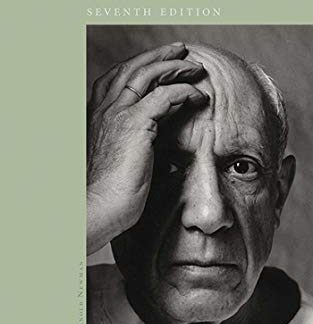Description
Language, Culture, and Society: Key Topics in Linguistic Anthropology by Christine Jourdan, ISBN-13: 978-0521849418
[PDF eBook eTextbook]
- Publisher: Cambridge University Press; Illustrated edition (June 12, 2006)
- Language: English
- 324 pages
- ISBN-10: 0521849411
- ISBN-13: 978-0521849418
A discussion of some important questions in linguistic anthropology, the study of language in relation to culture and social interaction.
Language, our primary tool of thought and perception, is at the heart of who we are as individuals. Languages are constantly changing, sometimes into entirely new varieties of speech, leading to subtle differences in how we present ourselves to others. This revealing account brings together eleven leading specialists from the fields of linguistics, anthropology, philosophy and psychology, to explore the fascinating relationship between language, culture, and social interaction. A range of major questions are discussed: How does language influence our perception of the world? How do new languages emerge? How do children learn to use language appropriately? What factors determine language choice in bi- and multilingual communities? How far does language contribute to the formation of our personalities? And finally, in what ways does language make us human? Language, Culture and Society will be essential reading for all those interested in language and its crucial role in our social lives.
Table of Contents:
HALF-TITLE
SERIES-TITLE
TITLE
COPYRIGHT
DEDICATION
CONTENTS
TABLES
CONTRIBUTORS
ACKNOWLEDGMENTS
INTRODUCTION: WALKING THROUGH WALLS
The ethnolinguistic perspective
Linguistic relativity
Language contact
Language socialization
Translation and hermeneutics
Variation and change
1 AN ISSUE ABOUT LANGUAGE
2 LINGUISTIC RELATIVITIES
Universals, particulars, and relativity
Before Boas: a universe of laws or a multiverse of essences
Romanticism
Boas and Boasian linguistics
Boasian principles
Boas, science, and linguistics
Sapir, Lee, Whorf
Sapir, Whorf, and Einstein
Beside Boas: structuralism and Neoromanticism
After Boas: the near-death and rebirth of linguistic relativity
Returns of relativity
Conclusion
3 BENJAMIN LEE WHORF AND THE BOASIAN FOUNDATIONS OF CONTEMPORARY ETHNOLINGUISTICS
Whorf as a linguist among his peers
Whorf and cognitive science
4 COGNITIVE ANTHROPOLOGY
Cognitive anthropology across four decades
Classic ethnoscience and its direct heirs
Ethnoscience and “the new ethnography”
Cultural models
Linguistic relativity
The rehabilitation of Sapir and Whorf
Spatial language and spatial thinking across cultures
Conclusions: The coming of age of cognitive anthropology
5 METHODOLOGICAL ISSUES IN CROSS-LANGUAGE COLOR NAMING
Response to Lucy’s point 1
Response to Lucy’s point 2
Response to Lucy’s point 3
Conclusion
6 PIDGINS AND CREOLES GENESIS: AN ANTHROPOLOGICAL OFFERING
Pidgins and creoles: the state of play
Culture in pidgin and creole genesis
Power, knowledge, and resistance
Cognition, substrates, and universals
Conclusion
7 BILINGUALISM
Why worry about bilingualism?
Bilingualism as a test for linguistic theory
Bilingualism, culture and society
Bilingualism in social interaction
Critical approaches to the study of bilingualism and society: community, identity, language
8 THE IMPACT OF LANGUAGE SOCIALIZATION ON GRAMMATICAL DEVELOPMENT
An offer
The cultural milieu of language acquirers
Cultural organizations of talk to children (addressees)
Cultural organizations of talk by children (speakers)
The cultural milieu of children’s grammatical forms
Grammatical form as frequent but inappropriate for child use
Grammatical form as infrequent but appropriate for child use
The cultural milieu of children’s code of choice
Steps to a cultural ecology of grammatical development
9 INTIMATE GRAMMARS: ANTHROPOLOGICAL AND PSYCHOANALYTIC ACCOUNTS OF LANGUAGE, GENDER, AND DESIRE
Loco motion
“Might be girl”: the linguistic emergence of gender and sexuality
The subject of language
10 MAXIMIZING ETHNOPOETICS: FINE-TUNING ANTHROPOLOGICAL EXPERIENCE
Synthesis
Ethnopoetic poetry
Ethnopoetic translation
Analyses
Linguistic Ethnopoetics, or Linguapoetics
Ethnographic or cultural ethnopoetics
Syntheses and Analyses
Ethnopoetic cum anthropological theory
Metapoetics and poetic revolution
Final problem: political ethnopoetics
Why ethnopoetics?
11 INTERPRETING LANGUAGE VARIATION AND CHANGE
Etymology and comparative grammar
The Neo-grammarians and the doctrine of the “exceptionless sound law”
The etymology of “trouver”
Etymologies, fossils, and narratives
Research on variation and change since Saussure
REFERENCES
INDEX
Christine Jourdan is Professor and Chair in the Department of Sociology and Anthropology, Concordia University.
Kevin Tuite is Professuer titulaire (full Professor) of Anthropology at the Université de Montréal.
What makes us different?
• Instant Download
• Always Competitive Pricing
• 100% Privacy
• FREE Sample Available
• 24-7 LIVE Customer Support




